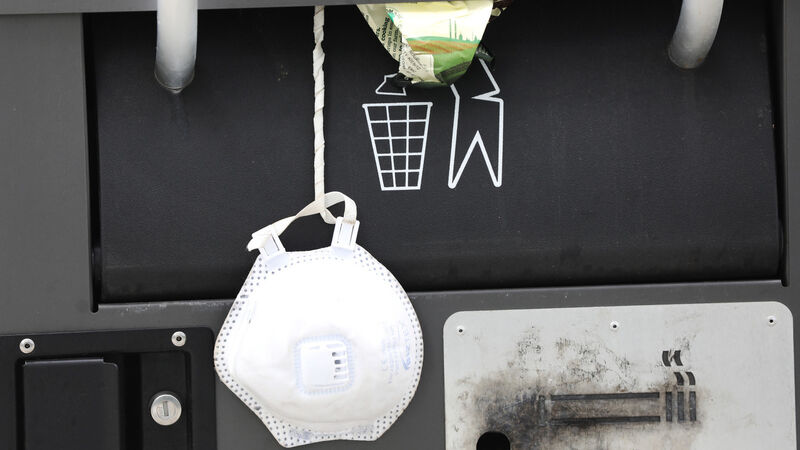Face masks and antigen tests contaminating recycling plants

Facemasks are considered medical waste ans cannot be recycled.
Ireland's biggest recycling plant is inundated with face masks and medical waste among other Covid-related paraphernalia.
"We are seeing it all. Face masks are a huge problem, and they're not recyclable. It's the throw-away blue ones, they're composite meaning they're a mix or a blend of materials and therefore not recyclable," said Liam Dunne, general manager at Panda's materials recovery facility.










